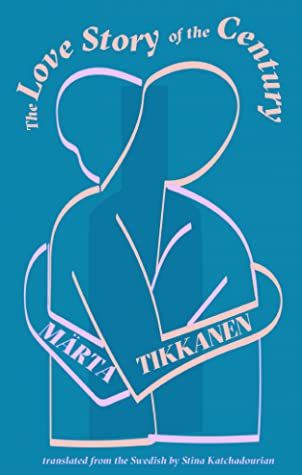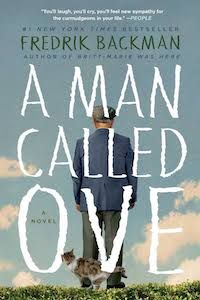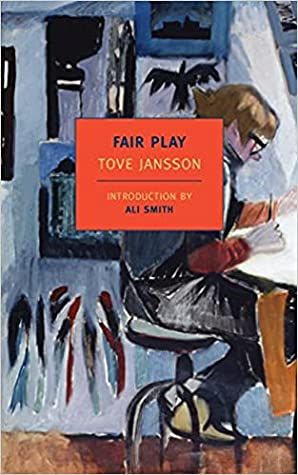[unable to retrieve full-text content]
Genius English Translations – PSY - That That ft. SUGA of BTS (English Translation) GeniusImage

[unable to retrieve full-text content]
Genius English Translations – PSY - That That ft. SUGA of BTS (English Translation) GeniusTelegram offers a convenient way to translate messages within the app. The feature was launched with an update in early 2022, along with Message Reactions, Spoilers, and Themed QR Codes, among others. Telegram has been working extensively on Interactive Emojis (emojis that appear with an on-screen animation). While it previously introduced seven interactive versions of emojis like fire, star eyes, and startled face, it recently added animated emojis for several food items like a hot dog and a piece of cake.
While WhatsApp is testing the ability to increase its file transfer limit up to 2GB, Telegram already allows users to share files that are up to 1.5GB in size. Telegram offers other useful features like custom notification sounds and auto-delete durations that let users customize their experience with the app. Given the open nature of Channels and Groups on the platform, Telegram is often used as a search engine as well.
Related: How To Delete Telegram Messages For A Specific Day Or Date Range
Message Translations is among the newer features added by Telegram. Since the application allows up to 200,000 members in a group, it is very likely that public groups will have users who live in different parts of the world and communicate in different languages. Telegram Channels on the other hand allow unlimited users. Telegram's in-app translation feature can come in handy here. It can translate messages with the tap of a button, saving users time and effort that might be spent copying a message and then translating it with Google or a different app.
To enable in-app translation on Telegram, users will need to tap the three-bar icon at the top-left corner of the app and select Settings. In the menu, tap on Language. Tap on the toggle next to Show Translate Button to enable in-app message translations. Right below this, users can select languages they are fluent in under Do Not Translate. Select the language in which messages should be translated under Interface Language. Once the setting is enabled, users can tap on any message and select Translate from the pop-up menu that appears. Telegram will display the message translated into the selected language of choice. Users also have the option to copy the translated message or translate it into another language.
The in-app message translation feature is available on all Android devices that are supported by Telegram, i.e., devices running Android 6.0 and later. For iPhone users, the feature is available on models with iOS 15 and later. Additionally, the application also informs users that it translates messages with the help of Google with a disclaimer that reads "Google may have access to the messages you translate." Telegram also notes that the list of available languages depends on the phone's operating system.
Next: How To Enable Two-Step Verification On Telegram
Source: Telegram
Image

The Pipa Project will host a bilingual reading of two picture books from Brazil at the Eric Carle Museum of Picture Book Art on Saturday, April 30 starting at 11 a.m.
The Pipa Project is an initiative to promote Brazilian picture books in translation.
“Chapeuzinho Amarelo” by Chico Buarque will be presented at 11 a.m. and “Marcelo, Martelo, Maremelo” by Ruth Rocha will be presented at noon.
Image

The books will be read by UMass Portugese translation students, storyteller Fernanda Rivitti and musicians Rafael Freire and Paul Arslanian. They were translated by the students and Tal Goldfajn, professor of Portugese.
Admission to the event is free with museum admission.
Learn more at the Eric Carle Museum website.
Scandinavian literature is famous for its crime novels and bleak landscapes. Perhaps most famously, The Girl With the Dragon Tattoo by Stieg Laarson, translated by Reg Keeland, took the world by storm (although Keeland still isn’t listed on the book’s cover). Published in 2005, it had sold 30 million copies worldwide by 2010, and was ranked by The Guardian as one of the 100 Best Books of the 21st Century.
But looking past Stieg Laarson, what Swedish books available in English translation should you read? Please don’t assume that all Swedish literature is cold crime investigation and psychological thrillers — you should know that childhood classic Pippi Longstocking, about the antics of a wild, strong, mischievous red-pigtailed girl, came from Swedish author Astrid Lindgren, translated by Florence Lamborn.
So in order to give you this list of grim dystopias and creative speculative fiction, of stark realist literary fiction and emotional contemporary literature, I drew from a variety of genres and authors.
Some disclaimers: Marginalized authors, particularly authors of color, are less likely to be published and also less likely to be translated, and there is an unfortunate lack of them on this list. (Please let me know if I’m missing someone crucial!). This is also a list of translated literature specifically: In Every Mirror She’s Black is a recent novel by Stockholm-based Nigerian American author Lola Akinmade Åkerström, but it was written originally in English.
Over the past month, I have read, read, and read in order to recommend you these 11 Swedish books available in English translation, and I have loved every minute of it. So get reading!
Please note that while I took great care to list content warnings where I could, sometimes things fall through the cracks. Please do additional research on the recommended titles if needed.

Annika claims to be a woman from the future. Yes, she did take part in an act of terror, but that was before she remembered and tried to set it right. Yes, she does sometimes remember how to speak Annika’s language, but Annika’s body is not actually her own. She is a young girl from a future where Islamophobia has become a legal, contracted part of being a citizen of Sweden, in which people disappear constantly for being enemies of the state. As the protagonist, a writer, hears more of her story, he begins to believe her. He has to decide what future he wants to believe in, and what it means for the future of his wife and child. It’s a book of intense emotion and burning questions with searing answers. Is she really from the future? And if she is, did she actually manage to change it?
Content warnings for violence, torture, terrorism, shooting, police and militia brutality, hate crimes, Islamophobia, xenophobia, death by suicide.

Tikkanen’s novel in verse is a profound and painful story about a woman struggling with her alcoholic husband. It’s a book about the painful impact of substance abuse on a family, a book about love, fear, and violence in a relationship, a book about resilience and anger. “What sort of influence do I have on you / when I’ve made you believe / that all the thoughts I think / are against you? / How can you have gotten the idea / that my road to freedom / goes over your body?” writes Tikkanen in his painfully honest, rich book that is finally freshly available in English translation.
Content warnings for alcoholism, manipulation, suicidal ideation and threat, emotional and domestic abuse, sexism.

Ove is a grumpy old man who lost his wife six months ago and is planning to die by suicide any day now. But things keep getting in the way. The new neighbors drive a trailer into his mailbox. A teen doesn’t know how to repair a bicycle. A stray cat is attacked by some neighbor’s mean dog. It’s a vivid book about a man who has lost a lot, who has fought, especially against the “white shirts” or bureaucracy, for everything he has. As he grudgingly takes care of the Cat Annoyance and connects with neighbor Parvaneh, his barriers begin to crack and his death continues to be postponed — until, one day, the “white shirts” threaten one of his neighbors, and he decides enough is enough. It’s a feel-good, touching story about grief, love, and growing old.
Content warnings for fatphobia and suicidal ideation, planning, and attempts.

In this poetic, strange book, Knausgård gives us a retelling of the birth of Athena. Young Anna bursts from her father’s skull in full armor and is promptly discovered and sent into a foster care family, her father institutionalized. In her new house, she slowly becomes part of the family, buying candy for her new brothers and learning to ski and split wood. But one day, she discovers that she can speak in tongues, a wild unleashing of language that the church begins to leverage even as it exhausts her. The book is intense and psychological, as people try to get to the bottom of who Anna is and what is causing her deep depression and silence, as she tries to gain control of her own body and mind.
Content warnings for suicidal ideation and attempts, self-harm, institutionalization, blood, neglect, violence.

In 1968, radical feminist and self-titled man-hater Valerie Solanas, author of the SCUM manifesto, shot Andy Warhol. Twenty years later she would be found dead in a grimy hotel room in San Francisco. In this book, Stridsberg dives into her life in a fantastical and confused rambling narrative that aims to reconstruct a queer, bold, sex-working woman who was built around anger and heartbreak. Through this tough story in which Stridsberg fully admits she can’t know everything, she is nevertheless able to bring together a vision of this difficult woman’s persona, and give her an unapologetic voice.
Content warnings for death, poverty/classism, substance abuse, sexual assault/rape, child abuse, sex shaming, domestic abuse, self-harm, institutionalization, suicide.

This iconic bestselling 2004 novel, famously adapted into film, features a 12-year-old boy named Oskar meeting centuries-old child vampire Eli. It first starts when a body of a teenage boy, emptied of blood, is found in the suburb of Blackeberg. Oskar quietly hopes that it might be a reckoning for the bullies who torture him at school — meanwhile, he’s befriending his new, strange neighbor who only comes out after sundown. The horror novel is an absolute mainstay in the vampire genre, and it’s a great book that ties the supernatural into a weave of issues around coming of age, violence, bullying, family issues, and other emotional turns.
Content warnings for anxiety, bullying, pedophilia, genital mutilation, self-harm, violence.

“History will call them: close friends, besties, roommates, colleagues — anything but lovers — history hates lovers…” The creator and illustrator of the Moomins, Tove Jansson, “lived alone.” Or so her bio said. Except her home was connected via attic to the house of her long-term, committed sapphic love, graphic designer Tuulikki Pietilä. Fair Play tells a story that’s very similar to that of Tove and Tuulikki. Jansson presents a series of vignettes about Mia and Jonna, two women connected by an attic, who spend their summers at an island home, giving each other the independence they need, arguing, making peace, and overall showing their quiet, understanding love, all while creating and making art.

Writer Ester Nilsson thinks she’s a pretty reasonable person. She’s sensible and sure of herself. She’s in a comfortable relationship that she thinks is quite safe and going quite well. But when she gives a lecture on artist Hugo Rask, and the artist himself appears in the audience, she discovers that she’s not as sensible as she thought she was. She falls head over heels into unrequited love, and despite always seeing herself as such a careful person, she now throws herself completely into this destructive, determined love, a deeply misguided surrender that sows suffering wherever it goes. We aren’t always meant to sympathize with Ester — but as she deals with this obsessive imbalanced love, she interrogates what love is and should be, and the philosophical questions are thoughtful and interesting.
Content warnings for imbalanced relationship, obsessive behavior, manipulation, anxiety.

A grandfather is coming to visit his children: his son, now a father who feels constantly scrutinized by his working wife and by other parents, and his daughter, who finds herself pregnant in a relationship she was determined to keep casual. The grandfather is impossible to deal with, self-centered and judgmental. Both his children dread his chaotic arrival into their lives. This novel is a fantastic look into the fraught memories and difficult relationships between parent and child, loaded with loss, grief, and generational difference. It’s touching, painful, and rich. I particularly related to the son’s struggle to feel like he is enough as a father, even as I grated against his unfair reactionary arguments with his girlfriend. It’s a rich and vivid book from a fantastic author.
Content warnings for Islamophobia, xenophobia, manipulative/abusive relationships, antisemitism.

This witty, exciting book won the 2016 August Prize, Sweden’s most prestigious. In it, Ellinor finds herself stranded in a snowstorm in Stockholm, trapped in the center of a weird argument between an ex-wife, a literary critic, and author Max Lamas, who is on his way to Italy, dreaming of a polyglot lover who will understand him in any language. Through Lamas, Wolff explores the psyche and actions of a misogynistic jerk, a desperately unlikable protagonist who puts himself first in sex and in his writing, before plunging into the impact of his misogynistic and exploitative choices.
Content warnings for suicidal ideation, sexism, emotional abuse.

We open with Vanja, a woman on her way to do market research in the colony of Amatka. In the grim dystopia that Vanja lives in, every item must be “marked” often, or named, to keep it what it is. You must name your pencil, a pencil, now and then, and never call it anything else, or it could dissolve into sludge. People who aren’t careful to do so risk being labeled dangerous and taken away. Glimmers of how this quietly terrifying world came to be peek through the cracks as Vanja falls for housemate Nina and makes tentative friends with retired doctor Ulla and the local librarian. And then things begin to get interesting. It’s a spectacular work of speculative fiction, originally written in Swedish and then translated into English by its author.
Want more books in translation content? I have lists for you of books in translation from Argentina, Brazil, Catalonia, Central Africa, France, Japan, Mexico, Southeastern Europe, and Ukraine. If you have recommendations or requests for future lists of books in translation, or if you want me to know about a book I might have missed, let me know on Twitter.
[unable to retrieve full-text content]
Today's Wordle Shows That We Need a Wordle Dictionary ComicBook.com[unable to retrieve full-text content]
Today's Wordle Shows That We Need a Wordle Dictionary ComicBook.comIf you are of a certain vintage, the regular online clamour from fans and stans desperate for success to fall in the laps of their indie favourites will likely have struck an odd chord with you. Haven’t they heard of selling out? “Am I so out of touch?” you muse to yourself. “No, it’s the children who are wrong.”
You think back to the good old days of the mid-1990s, when signing to a major label was verboten and you were entirely justified in wishing failure and ruin on any band who chose to go down that route. Bands such as Jawbreaker. Especially Jawbreaker. “You’re not punk and I’m telling everyone,” they once sang – and no-one got the joke.
One of the most important and influential Bay Area punk bands, their excellent, slightly cleaner and more adventurous final LP Dear You was released by DGC in September 1995 and swallowed whole by the discourse surrounding it. “Dear You… eventually wound up on some nameless secondhand store’s shelf to inflict its half-life of misery on someone else,” ran a retrospective 2.3 Pitchfork review in 2004, and that writer used to like the record back in the day. This shit lingered and mutated.
Jawbreaker folded soon after the album’s release, and their charismatic punk-poet guitarist and vocalist Blake Schwarzenbach binned the whole being-in-a-band thing for a while, moving east and settling in Brooklyn, where he met Handsome vocalist Jeremy Chatelain through his girlfriend. They didn’t know it at the time but they had plenty in common.
Like Jawbreaker, Handsome had been chewed up and spat out by the major label machine. A post-hardcore meeting of minds featuring members of Helmet, Quicksand and Cro-Mags, their sole album is a monument to a sound that bands such as Far would take further into the public consciousness: dense, heavy, atmospheric guitars paired with emotionally intuitive vocals.
Chatelain and Schwarzenbach began working on new music, bringing in another bruised musician in Texas is the Reason drummer Chris Daly, whose own band had gone to the grave with a major label deal on the table. The songs came together quickly and bled beyond boundaries regularly, wilfully. Jets to Brazil’s first moves were part exorcism, part provocation, and people were desperate to hear them.
They recorded a demo early in 1998 and signed to Jade Tree before heading out on tour with Milwaukee emo heroes the Promise Ring. By the time they hit the studio to record an album proper, things were in place and humming along.
Orange Rhyming Dictionary was assembled in the summer of 1998 at Easley McCain Recording in Memphis, Tennessee – previously home to indie-rock luminaries Sonic Youth, Guided by Voices, Wilco and Pacer – with producer J Robbins, another punk who’d gone to the dark side by teaming with Atlantic to release Jawbox’s For Your Own Special Sweetheart in 1994. He, though, had found some manner of acceptance among the band’s faithful. “They cut us slack,” he told Dan Ozzi in the book Sellout. “But Jawbreaker fans did not cut them that same slack.”
“We all liked the idea of going out of town to record, to fully immerse ourselves in the making of this thing,” Schwarzenbach told Punk Rock Theory. “It was really a perfect arrangement – I can’t imagine that record happening anywhere else. The main room at Easley was so enchanting: lots of lamps, space and a piano. It just encouraged late-night experimentation as a space.”

The first thing to note about Orange Rhyming Dictionary is how quickly it makes the furore around Dear You look silly. That made you want to spit in someone’s mouth/throw beer bottles at them/ban them from your venue? Wait ’til you get a load of this. Even Accident Prone, that record’s six minute centrepiece, didn’t have all this going on.
“We all lived together during that week in Memphis,” Chatelain told Punk Rock Theory. “We charted the record out and discussed the parts in detail. J attended rehearsals and made suggestions. He played a few guitar parts and sang some harmony. There are a few very J Robbins vocal harmonies on the record. He has a sound that is all his own.
“In general, he made all of us feel comfortable during the process of tracking our first record. He does this thing where he puts his palm on his forehead and asks, ‘Are you married to that part?’ He’s great, very diplomatic about the process. He helped us feel good about the outcome.”
Opener Crown of the Valley employs snaking lead lines, octave riffs, playful wah and surging drops built around Schwarzenbach’s use of open strings. A left-handed player most commonly associated with a series of Les Pauls and a JCM800, Schwarzenbach’s meticulous style meshes with Robbins’ off-kilter framing, creating a multi-tracked latticework of guitars that is only amped up by the explosive Morning New Disease, which “seems like the ur-Jets track” according to its writer.
But there’s also an appreciation for space and pacing, something felt most keenly on the spare, affecting Sea Anemone. With a guitar line only a step removed from alt-country, the song hangs in the air at the album’s midpoint, using only a few motifs across its five minutes and making the jumbles on either side feel all the more pointed, excited and bristling with ideas.

According to Jade Tree boss Darren Walters, Orange Rhyming Dictionary became the label’s biggest-selling release. Jets to Brazil subsequently added Van Pelt guitarist Brian Maryansky to the line-up, allowing Schwarzenbach to play keys more often, and toured regularly and without ego, appearing all over the place like any other punk band earning their stripes.
Their two later records, 2000’s Four Cornered Night and 2002’s Perfecting Loneliness, went further and deeper into melody, stately keys and rock bombast. They are quite lovely but don’t feel as alive as the band’s opening statement.
Twenty years later, Jawbreaker have done the unthinkable and reformed, Chatelain has served time playing the heaviest of low ends in Helmet, and Jets to Brazil’s music can be viewed free from ties and expectations. They were a great band – different to some other great bands that came before and afterwards but great all the same.

Jets to Brazil, Orange Rhyming Dictionary (Jade Tree, 1998)
For more reviews, click here.